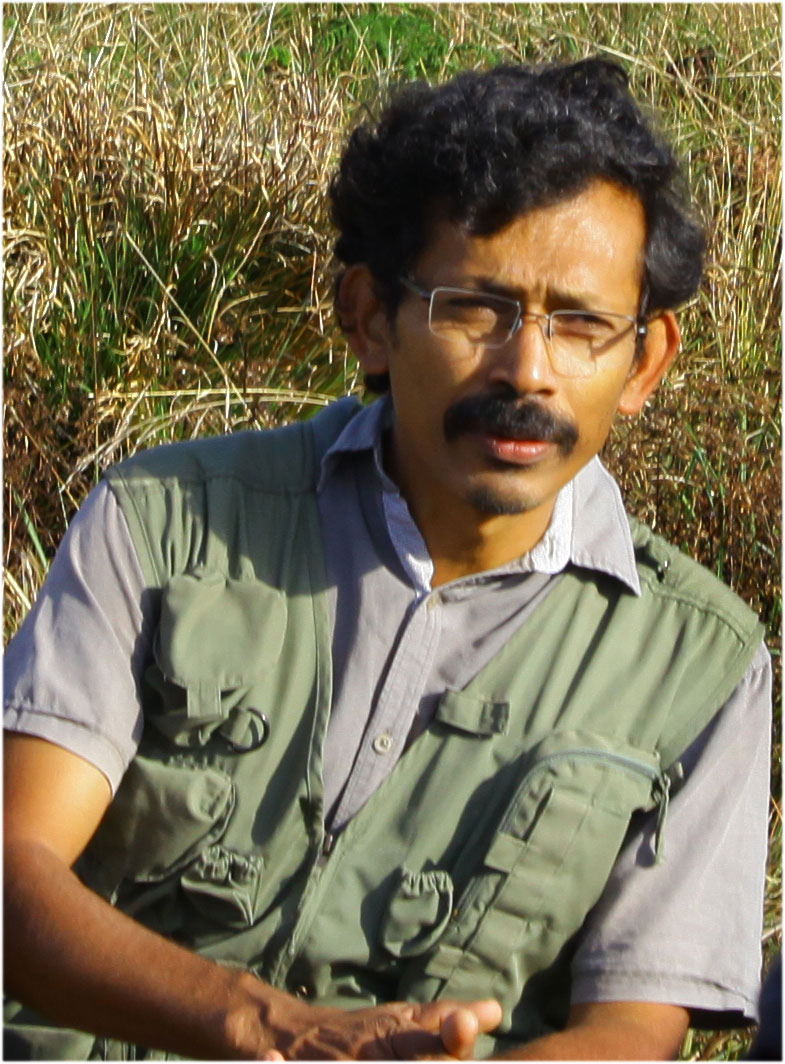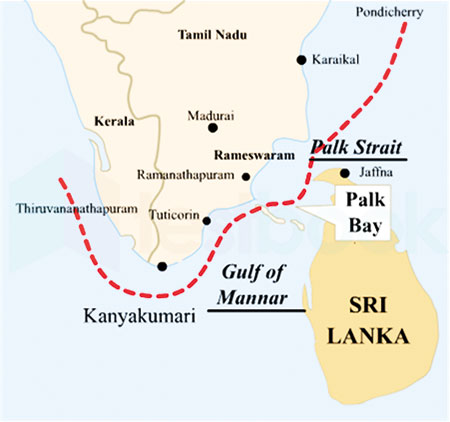Features
Smaller, Smarter and More Sustainable
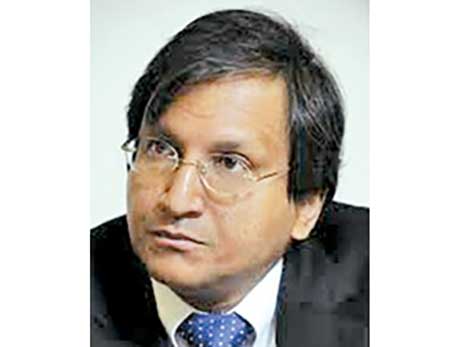
by Dr Sarala Fernando
Former Foreign Secretary Ravinatha Aryasinghe recently referred to the need to reshape Sri Lanka’s outward migrant flows to become “smaller, smarter and more sustainable”. From where does this concept derive? Internet sources point to a recent GTZ document on SME Reporting in Global Supply Chains. Whatever its origin, this vision offers a valuable guide for government policy in the new normal that is emerging in the aftermath of Covid 19 and in the background of deglobalization trends. It is in keeping with our Buddhist heritage of proportionality and human development including gender empowerment within a framework of environmental protection and compassion for animals.
Around the world even in the most advanced societies, infrastructure growth seems to have reached a dead end – renting is slumping in hi-rise buildings (as prestigious as the Empire State Building in New York) as workplaces get smaller with social distancing, automation is replacing on site workers, many of whom are being made redundant or asked to work from home. Everywhere, mobility is being reduced with current disincentives on global tourist travel and transportation while new modes of transactions like ecommerce and online sales are booming in place of retail sales in traditional malls. The question is, however, whether our new government which has scored a huge victory at the recent election and amassed a massive majority in the new Parliament, will see that as an endorsement of an opposite vision, more prestige buildings and large scale projects in manufacturing and agriculture, irrespective of their cost to the environment.
It is not only the government but also the private sector which seems to find it difficult to adjust to the “new normal”. Projects for 600 room hotels in fragile environments are being mooted, huge office cum shopping malls and apartment blocks are still coming on stream around Colombo, all of which raise public concerns on the distribution of limited supplies of water, electricity and stress on sewerage and waste disposal capacity. Is it too late to offer a new paradigm that all this new building infrastructure should be ” smaller, smarter and more sustainable” with resort to solar power instead of tapping the national grid, recycling water use instead of just relying on the mains and even handling its own waste disposal on site. This is particularly important in respect of the new Port City which has the technical capacity and is well placed to support municipal assets instead of drawing them down. The Port City enticement of opening park areas to the public is welcome but what price leisure if water pressure is reducing and electricity and telecommunication supply becomes more erratic and more expensive for city residents?
At the same time, there is hope in that many small groups organized and driven by young volunteers are mobilizing entirely on their own, to spruce up railway stations and clean pilgrimage sites and beaches.These scattered efforts are being supported by the security forces especially the Navy under its blue –green programme. It is also good to hear of local companies developing cost effective composting machines for household to industrial waste, networks for collecting and converting plastic waste and a factory for disposing of hospital waste. There is even an ongoing initiative to make a machine to collect plastic and other waste from the river mouths before this goes on to contaminate the ocean.
A concerned citizenry determined to protect the environment and connected through social media can help form a national green movement to put the environment first. Perhaps a start could be made in the debate over the proposed new constitution calling for a clause to be added on the lines of the Indian example: Fundamental Duty: (I) Article 51-A(6) : By Constitution (42nd Amendment) Act, 1976. … “It shall be the duty of every citizen of India to protect and improve the natural environment including forests, lakes, rivers and wildlife and to have compassion for living creatures”.
President Rajapaksa appears to be aware of the challenges as he has shunned extravagance preferring to operate out of his own home and with minimum security and entourage. He would however have access to all the “smart” security infrastructure, data and equipment although it may take time to train a “smarter” human support. In his previous work on urban renewal he has given indications of sensitivity to the need to green the city, restore its heritage assets and keep it clean. He has had to strength so far, to limit the ambitions of the palm oil lobby to cultivate more acreage at the cost of drying up local water resources but has allowed the controversial road to be cut through Sinharaja rain forest opening the way for uncontrolled development which may jeopardize its UNESCO Heritage status.
Today environmentalists are worried whether the government’s financial crisis will lead to the destruction of forests, alienating lands reserved for the environment and for its denizens to make way for example to foreign multinational companies to resort to large scale agriculture using genetically modified (GM) seeds. Already conflicts have arisen on the ground with Mahaweli lands to be given to foreign investors, removing local cultivators from these lands. Can we not learn from across the waters where a different struggle is taking shape to restore traditional farming practices and saving indigenous seed varieties from foreign exploitation? Recent full page press advertisements by a multinational famous for its pineapple products, which entered Sri Lanka in the past by using reserved forest lands for growing a monocrop of Cavendish bananas, hints of the controversies of the “new agriculture” that is coming and the dangers posed to the wealth of indigenous varieties and seeds in this country.
Instead of allowing the destruction of forest lands for commercial exploitation and foreign investment, why does the government not make an assessment of the many buildings and lands currently occupied by government ministries and departments in the major cities, organize all the public services in a few strategic locations, thereby releasing the excess for sale or other uses? Not so long ago the Department of Poor Relief was located in Colombo 7 and even now government staff quarters are located in this same area which commands a high property value. Construction of huge buildings coming up for local assemblies could be discouraged which include those famous imported chairs and other extravagance at public expense. It is said that many school buildings around the island are in need of essential refurbishment and are empty for lack of students or teachers and a monk mentioned to me recently that there are hundreds of temples abandoned for lack of resident monks. How could these be brought back to life for services to the communities near by?
Some rationalization of renting buildings for government departments is required. I had some experience of this in Geneva having overseen bringing back of the consular office from an outside location to the Sri Lanka mission leading to savings of 25% of the mission budget without loss of productivity. In Sri Lanka, a specific example is the Foreign Ministry consular division which has been moving from rented location to rented location in Colombo while,logically it should be housed within the Immigration building for the sake of public convenience. Similarly should not the CEB and Water Board share city offices for the convenience of the public, leaving their headquarters separate for reasons of data and critical infrastructure security? My perspective is based on personal experience, having visited many offices after retirement and rather appalled at these flashy new buildings constructed for revenue generating Ministries like Immigration and Customs where the public entrance is open to the elements while the portico covered entrance is reserved for VIP vehicular traffic. It seems that computers are all networked together in these buildings so that one failure sends the whole system down and customers are forced to wait or return another day. This is definitely not smart. Too late to make “smaller” but certainly opportunity for making more user- friendly and more sustainable.
This vision of “smaller,smarter and more sustainable” is attached to a larger vision of urban renewal but how to bring this about? The lack of organization and neglect of cleanliness is seen by a simple example, the chaos in the rail yards in the south clearly visible when taking the train from Colombo to Jaffna, and from that chaos then like a miracle, entering into to neat fenced areas in the North. Some may argue that this is not a good example because new reconstruction has come to the North and the smaller population makes management easier. Yet, the question arises whether the chaos in the south is symptomatic of a deeper problem, an unconcerned local citizenry or the lack of caring leadership? Driving through Kurunegala town recently I was wondering how this urban mess, dug up roads and pavements, has come to pass, given that this constituency sends some of the most powerful Members to Parliament. The city of Galle sometime ago was another example where the entrance to the city along the coast was cluttered with heaps of garbage, ignoring the importance of the first impression, (a basic lesson in diplomacy). I am remembering also former Foreign Minister Kadirgarmar who told me once that on setting foot inside a mission and seeing its arrangement and upkeep he would know instantly the state of that diplomatic mission.
(Sarala Fernando PhD, retired from the Foreign Ministry as Additional Secretary and last Ambassadorial appointment was as Permanent Representative to the UN in Geneva. She writes now on foreign affairs, diplomacy and protection of heritage).
Features
Challenges to addressing allegations during Sri Lanka’s armed conflict
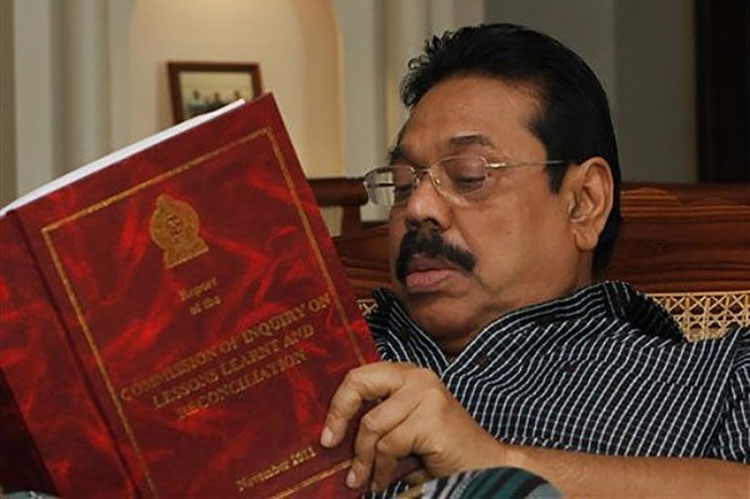
A political commentator has attributed the UK sanctions against four individuals, three of whom were top ranking Army and Navy Officers associated with Sri Lanka’s armed conflict, to the failure of successive governments to address human rights allegations, which he describes as a self-inflicted crisis. The reason for such international action is the consistent failure of governments to conduct independent and credible inquiries into allegations of war crimes; no ‘effective investigative mechanism’ has been established to examine the conduct of either the Sri Lankan military or the LTTE.
He has not elaborated on what constitutes an “effective investigative mechanism. He has an obligation and responsibility to present the framework of such a mechanism. The hard reality however is that no country, not even South Africa, has crafted an effective investigative mechanism to address post conflict issues.
INVESTIGATIVE MECHANISMS
The hallmark of a credible investigative mechanism should be unravelling the TRUTH. No country has ventured to propose how such a Mechanism should be structured and what its mandate should be. Furthermore, despite the fact that no country has succeeded in setting up a credible truth-seeking mechanism, the incumbent government continues to be committed to explore “the contours of a strong truth and reconciliation framework” undaunted by the failed experiences of others, the most prominent being South Africa’s Truth and Reconciliation Commission.
South Africa’s Truth and Reconciliation Commission is often cited as the gold standard for post conflict Mechanisms. Consequently, most titles incorporate the word “Truth” notwithstanding the fact that establishing the “Truth” was a failure not only in South Africa but also in most countries that attempted such exercises.
Citing the South African experience, Prof. G. L. Peiris states: “pride of place was given to sincere truth-telling which would overcome hatred and the primordial instinct for revenge. The vehicle for this was amnesty…… Despite the personal intervention of Mandela, former State President P. W. Botha was adamant in his refusal to appear before the Commission, which he deemed as ‘a fierce unforgiving assault’ on Afrikaaners” (The Island, 01 April, 2025). In the case of Sri Lanka too, disclosures to find the “Truth” would be all about the other party to the conflict, thus making Truth seeking an accusatory process, instead of a commitment to finding the Truth. The reluctance to engage in frank disclosure is compounded by the fear of recrimination by those affected by the Truth.
Continuing Prof. Peiris cites experiences in other countries. “Argentina, the power to grant amnesty was withheld from the Commission. In Columbia, disclosure resulted not in total exoneration, but in mitigating sentences. In Chile, prosecutions were feasible only after a prolonged interval since the dismantling of Augusta Pinochet’s dictatorship ….” (Ibid).
The mechanisms adopted by the countries cited above reflect their own social and cultural values. Therefore, Sri Lanka too has to craft mechanisms in keeping with its own civilisational values of restorative and not retributive justice for true reconciliation, as declared by President J. R, Jayewardene in San Francisco as to what the global attitude should be towards Japan at the conclusion of World War II. Since the several Presidential Commissions appointed under governments already embody records of alleged violations committed, the information in these commission reports should be the foundation of the archival records on which the edifice of reconciliation should be built.
ESTABLISHING DUE CONTEXT
The suggestion that an independent and credible inquiry be conducted into allegations of war crimes reflects a skewed understanding of the actual context in which the armed conflict in Sri Lanka occurred. Even the UNHRC has acknowledged that the provisions of “Article 3 common to the four Geneva Conventions relating to conflicts not of an international character is applicable to the situation in Sri Lanka, as stated in para. 182 of the OISL Report by the UNHRC Office. Therefore, the correct context is International Humanitarian Law with appropriate derogations of Human Rights law during an officially declared Emergency as per the ICCPR.; a fact acknowledged in the OISL report.
Consequently, the armed conflict has to conform to provisions of Additional Protocol II of 1977, because “This Protocol, which develops and supplements Article 3 common to the Geneva Conventions is the due context. There is no provision for “alleged war crimes” in the Additional Protocol. Although Sri Lanka has not formally ratified Additional Protocol II, the Protocol is today accepted by the Community of Nations as Customary Law. On the other hand, “war crimes” are listed in the Rome Statute; a Statute that Sri Lanka has NOT ratified and not recognized as part of Customary Law.
Therefore, any “investigative mechanism” has to be conducted within the context cited above, which is Additional Protocol II of 1977.
SRI LANKAN EXPERIENCE
On the other hand, why would there be a need for Sri Lanka to engage in an independent and credible inquiry into allegations, considering the following comment in Paragraph 9.4 and other Paragraphs of the Lessons Learnt and Reconciliation Commission (LLRC)?
“In evaluating the Sri Lankan experience in the context of allegations of violations of IHL (International Humanitarian Law), the Commission is satisfied that the military strategy that was adopted to secure the LTTE held areas was one that was carefully conceived in which the protection of the civilian population was given the highest priority”
9.7 “Having reached the above conclusion, it is also incumbent on the Commission to consider the question, while there is no deliberate targeting of civilians by the Security Forces, whether the action of the Security Forces of returning fire into the NFZs was excessive in the context of the Principle of Proportionality…” (Ibid)
The single most significant factor that contributed to violations was the taking of Civilians in the N Fire Zone hostage (NFZ) by the LTTE. This deliberate act where distinction between civilian and combatant was deliberately abandoned, exposed and compromised the security of the Civilians. The consequences of this single act prevent addressing whether military responses were proportionate or excessive, or whether the impact of firing at make-shift hospitals were deliberate or not, and whether limiting humanitarian aid was intentional or not. These issues are recorded and addressed in the Presidential Commission Reports such as LLRC and Paranagama. This material should be treated as archival material on which to build an effective framework to foster reconciliation.
UK SANCTIONS
Sanctions imposed by the UK government as part of an election pledge for Human Rights violations during the armed conflict is a direct act of intervention according to Article 3 of the Additional Protocol of 1977 that is the acknowledged context in which actions should be judged.
Article 3 Non-intervention states:
1 “Nothing in the Protocol shall be invoked for the purpose of affecting the sovereignty of a State or the responsibility of the government by all legislative means, to maintain or re-establish law and order in the State or to defend the national unity and territorial integrity of the State”.
2 “Nothing in the Protocol shall be invoked as a justification for intervening directly or indirectly, for any reason whatsoever, in the armed conflict or in the internal or external affairs of the High Contracting Party in the territory on which the conflict occurs”.
Targeting specific individuals associated with the armed conflict in Sri Lanka is a direct assault of intervention in the internal affairs of Sri Lanka. The UK government should be ashamed for resorting to violating International Law for the sake of fulfilling an election pledge. If Sri Lanka had issued strictures on the UK government for not taking action against any military officers responsible for the Bloody Sunday massacre where 26 unarmed civilians participating in a protest march were shot in broad daylight, Sri Lanka would, in fact be intervening in UK’s internal affairs.
CONCLUSION
The UK’s action reflects the common practice of making election pledges to garner targeted votes of ethnic diasporas. The influence of ethnic diasporas affecting the conduct of mainstream politics is becoming increasingly visible, the most recent being the Tamil Genocide Education Week Act of Ontario that was dismissed by the Supreme Court of Canada on grounds the Provincial Legislations have no jurisdiction over Federal and International Laws.
However, what should not be overlooked is that the armed conflict occurred under provisions of common Article 3 of the Geneva Conventions. This Article is developed and supplemented by Additional Protocol II of 1977. Therefore, since all Geneva Conventions are recognised as Customary Law, so should the Additional Protocol II be, because it is a development of common Article 3.
Imposing sanctions under provisions of Additional Protocol II amounts to Intervention in internal affairs of a State as stated in Article 3 of the Protocol; II cited above. Such interventions are prohibited under provisions of international law.
The need to revive independent and credible inquiries after the lapse of 16 years is unrealistic because those who were perpetrators and victims alike cannot be identified and/or located. Furthermore, the cost of disclosure because of the possibility of retribution would compromise their security. A realistic approach is to use the material recorded in the Presidential Commission Reports and treat them as archival records and use the lessons learnt from them to forge a workable framework that would foster unity and reconciliation with the survivors in all communities This is not to live in the past but to live in the here and now – the present, which incidentally, is the bedrock of Sri Lanka’s civilisational values.
by Neville Ladduwahetty
Features
The Silent Invasion: Unchecked spread of oil palm in Sri Lanka
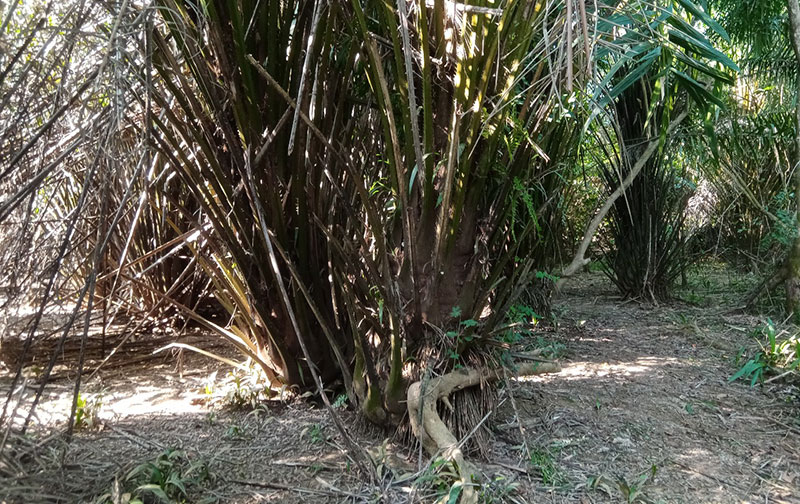
Sri Lanka’s agricultural landscape is witnessing a silent yet profound transformation with the rapid expansion of oil palm plantations. Once introduced as a commercial crop, the oil palm (Elaeis guineensis) is now at the center of a heated debate, with environmentalists and scientists warning of its devastating ecological consequences.
Speaking to The Island research scientist Rajika Gamage, said: “The spread of oil palm in Sri Lanka is not just a concern for biodiversity, but also for water resources, soil stability, and even local economies that rely on traditional crops.”
A Brief History of Oil Palm Cultivation
Oil palm, originally from West and Central Africa, was first cultivated for commercial purposes in Java in 1948 by Dutch colonists. It reached Malaysia and Indonesia by 1910, where its lucrative potential drove large-scale plantations.
According to Gamage, in Sri Lanka, the first significant oil palm plantation was established in 1968 at Nakiyadeniya Estate by European planters, initially covering a mere 0.5 hectares. Today, oil palm cultivation is predominantly concentrated in Galle, Matara, and Kalutara districts, with smaller plantations in Colombo, Rathnapura, and Kegalle.
Over the decades, he says the commercial viability of oil palm has prompted its expansion, often at the cost of native forests and traditional agricultural lands. Government incentives and private investments have further accelerated the spread of plantations, despite growing concerns over their environmental and social impacts.
Economic Boon or Environmental Curse?
Supporters of oil palm industry argue that it is the most efficient crop for vegetable oil production, yielding more oil per hectare than any other alternative. Sri Lanka currently imports a significant amount of palm oil, and expanding local production is seen as a way to reduce dependence on imports and boost local industries. However, Gamage highlights the hidden costs: “Oil palm plantations deplete water sources, contribute to soil erosion, and threaten native flora and fauna. These are long-term damages that far outweigh the short-term economic benefits.”
One of the primary environmental concerns is the aggressive water consumption of oil palm, which leads to the depletion of underground aquifers. This is particularly evident in areas such as Kalu River and Kelani River wetlands, where native ecosystems are being severely affected. Additionally, soil degradation caused by extensive monoculture farming results in loss of fertility and increased vulnerability to landslides in hilly regions.
Furthermore, studies show that oil palm plantations disrupt the natural habitats of endemic species. “Unlike rubber and coconut, oil palm does not support Sri Lanka’s rich biodiversity. It alters the soil composition and prevents the regeneration of native plant species,” Gamage explains. The loss of forest cover also exacerbates human-wildlife conflicts, as displaced animals venture into human settlements in search of food and shelter.
A Threat to Indigenous Agriculture and Culture
Beyond environmental concerns, oil palm is also threatening traditional crops like kitul (Caryota urens) and palmyrah (Borassus flabellifer), both of which hold economic and cultural significance. “These native palms have sustained rural livelihoods for centuries,” says Gamage. “Their gradual replacement by oil palm could lead to economic instability for small-scale farmers.”
Kitul tapping, an age-old tradition in Sri Lanka, provides a source of income for thousands of families, particularly in rural areas. The syrup extracted from kitul is used in local cuisine and traditional medicine. Similarly, palmyrah has deep roots in Sri Lankan culture, particularly in the Northern and Eastern provinces, where its products contribute to food security and local industries.
The rise of oil palm plantations has led to the clearing of lands that once supported the traditional crops. With large-scale commercial investments driving oil palm expansion, small-scale farmers are finding it increasingly difficult to sustain their livelihoods. Gamage warns, “If we allow oil palm to replace our native palms, we risk losing not just biodiversity, but also a vital part of our cultural heritage.”
The Global Perspective: Lessons from Other Nations
Sri Lanka is not the first country to grapple with the consequences of oil palm expansion. Malaysia and Indonesia, the world’s leading producers of palm oil, have faced severe deforestation, biodiversity loss, and socio-economic conflicts due to unchecked plantation growth.
In Indonesia, for example, vast tracts of rainforest have been cleared for palm oil production, leading to habitat destruction for endangered species such as orangutans and Sumatran tigers. Additionally, indigenous communities have been displaced, sparking legal battles over land rights.
Malaysia has attempted to address some of these issues by introducing sustainability certifications, such as the Malaysian Sustainable Palm Oil (MSPO) standard. However, implementation challenges remain, and deforestation continues at an alarming rate.
Sri Lanka can learn valuable lessons from these experiences. Implementing strict land-use policies, promoting agroforestry practices, and ensuring transparency in plantation expansion are crucial steps in mitigating environmental damage while supporting economic development.
The Urgent Need for Action
Despite these concerns, Sri Lanka has yet to enforce strict regulations on oil palm expansion. Gamage urges authorities to intervene: “It is imperative that we implement policies to control its spread before it is too late. The unchecked expansion of oil palm will lead to irreversible environmental damage.”
To address this issue, experts suggest a multi-pronged approach:
Stronger Land-Use Policies
– The government must enforce restrictions on oil palm cultivation in ecologically sensitive areas, such as wetlands and forest reserves.
Reforestation and Rehabilitation
– Efforts should be made to restore degraded lands by reintroducing native tree species and promoting sustainable agroforestry.
Supporting Traditional Agriculture
– Incentives should be provided to farmers growing traditional crops like kitul and palmyrah, ensuring that these industries remain viable.
Public Awareness and Education
– Raising awareness among local communities about the environmental and social impacts of oil palm can empower them to make informed decisions about land use.
Sustainable Alternatives
– Encouraging research into alternative vegetable oil sources, such as coconut oil, which has long been a staple in Sri Lankan agriculture, could reduce reliance on palm oil.
As Sri Lanka stands at a crossroads, the decisions made today will determine the country’s ecological and agricultural future. While the economic benefits of oil palm are undeniable, its long-term environmental and social costs cannot be ignored. The challenge now is to strike a balance between economic growth and environmental sustainability before the damage becomes irreversible.
In conclusion Gamage said, “We must act now. If we allow oil palm to spread unchecked, future generations will bear the cost of our inaction.”
Sri Lanka has the opportunity to take a different path—one that prioritises biodiversity conservation, sustainable agriculture, and the well-being of local communities. The time for decisive action is now.
By Ifham Nizam
Features
A plea for establishing a transboundary Blue-Green Biosphere Reserve in Gulf of Mannar and Palk Bay
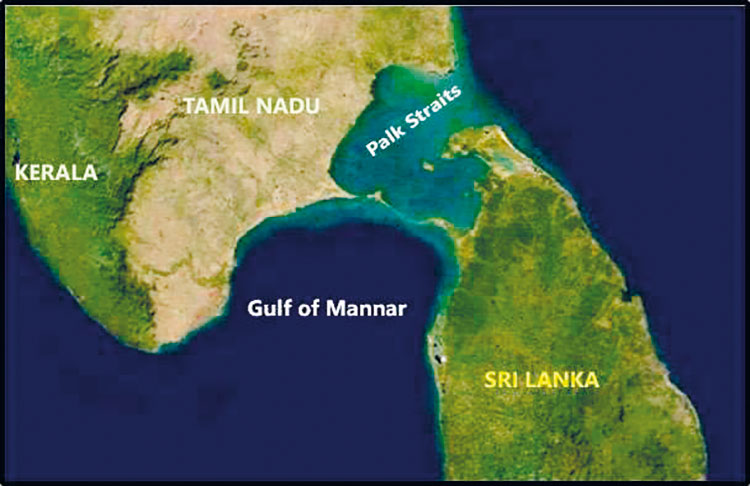
Blue-green land and waterscapes act as ecological corridors across land and water in creating an ecological continuity in order to protect and restore the habitats of native and naturalised species.
In addition, these ecological corridors also help to conserve and improve the habitats of migratory species, as well. One of the main objectives of establishing blue-green land-waterscapes is to reconcile increasing local/regional development and human livelihood challenges in a sustainable manner while, at the same time, safeguard biodiversity and their habitats/ecosystems, as far as possible.
While green landscapes are natural and semi-natural terrestrial vegetation types like natural forests and grasslands, blue waterscapes are aquatic or semi-aquatic vegetation types such as seagrass meadows, mangroves and coastal and other wetlands. These vegetated coastal ecosystems known as ‘blue carbon’ ecosystems are some of the most productive on Earth and located at the interfaces among terrestrial, freshwater and marine environments. They provide us with essential ecosystem services, such as serving as a buffer in coastal protection from storms and erosion, spawning grounds for fish, filtering pollutants and contaminants from coastal waters thus improving coastal water quality and contributing to all important food security.
In addition, they capture and store “blue” carbon from the atmosphere and oceans at significantly higher rates per unit area than tropical forests (Figure 1) and hence act as effective carbon sinks. By storing carbon, these ecosystems help to reduce the amount of greenhouse gas in the atmosphere, thus contributing significantly to mitigate the effects of climate change.

Figure 1: Carbon storage in different vegetation types (Source – What Is Blue Carbon and Why Does It Matter? – Sustainable Travel International)
.Blue-green Carbon Markets
The recognition of blue carbon (BC) ecosystems (primarily mangroves, seagrasses and tidal marshes) as an effective natural climate solution paved the way for their inclusion within carbon markets. Blue carbon is the marine analog of green carbon, which refers to carbon captured by terrestrial (i.e., land-based) plants. The blue-green carbon market involves buying and selling carbon credits from projects that protect and restore coastal and marine ecosystems (blue carbon) and terrestrial ecosystems (green carbon). Since Blue Carbon ecosystems have higher carbon sequestration (capture and store) potential compared to their terrestrial counterparts, blue Carbon credits are worth over two times more than green carbon credits. They offer opportunities for commercial enterprises to offset carbon emissions and in turn support climate action.
Blue Carbon projects are expected to grow twofold in the near future. With the recent surge in international partnerships and funding, there is immense growth potential for the blue carbon market. However, it is critically important to look beyond the value of the carbon sequestered to ensure the rights and needs of local communities that are central to any attempt to mitigate climate change using a blue and green carbon project.
Blue Carbon projects can serve as grassroot hubs for sustainable development by developing nature-based solutions in these ecosystems thus contributing to both climate change mitigation and adaptation. Globally, numerous policies, coastal management strategies, and tools designed for conserving and restoring coastal ecosystems have been developed and implemented. Policies and finance mechanisms being developed for climate change mitigation may offer an additional route for effective coastal management. The International Blue Carbon Initiative, for example, is a coordinated, global program focused on conserving and restoring coastal ecosystems for the climate, biodiversity and human wellbeing.
Until recently, most of these opportunities focus on carbon found in the above ground vegetative biomass and do not account for the carbon in the soil. On the other hand, blue carbon, in particular has the potential for immense growth in carbon capture economics in the near future and can provide significant socioeconomic and environmental benefits. Consequently, blue -green carbon habitats in the Gulf of Mannar – Palk Bay region represent invaluable assets in climate change mitigation and coastal ecosystem conservation and sustainable development.
Gulf of Mannar and Palk Bay Trans-boundary Region
The Gulf of Mannar and Palk Bay region form a transboundary area within the waters of southeastern India and northwestern Sri Lanka. This region supports dense seagrass meadows having a high level of marine biodiversity including marine mammals such as dugong. Sea turtles are frequent visitors to the gulf while sharks, dolphins, sperm and baleen whales too, have been reported from this area. The Mannar region is recognized as an Important Marine Mammal Area (IMMA) of the world by IUCN (Figure 2) and also an Important Bird Area by Birdlife International. This region as a whole is a store house of unique biological wealth of global significance and as such is considered as one of the world’s richest regions from a marine biodiversity perspective.
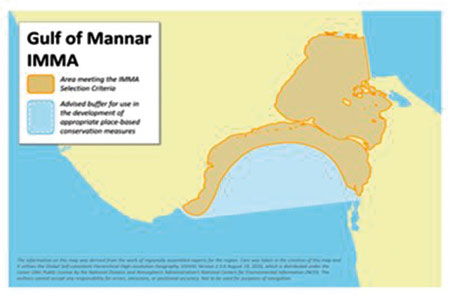
Figure 2. Gulf of Mannar and Palk Bay IMMA (Source – IUCN Joint SSC/WCPA Marine Mammal Protected Areas Task Force, 2022 IUCN-MMPATF (2022)
Gulf of Mannar Biosphere Reserve – India
India has already declared a part of this region as the UNESCO Gulf of Mannar Biosphere Reserve covering an area of 10,500 km2 of ocean with 21 islands and the adjoining coastline. The islets and coastal buffer zone include beaches, estuaries, and tropical dry broadleaf forests, while the surrounding seascape of the Marine National Park (established in 1986) and a 10 km strip of the coastal landscape that include seaweed communities, seagrass communities, coral reefs, salt marshes and mangrove forests form the coastal and marine component of the biosphere reserve on the Indian side of the Gulf of Mannar.
Sri Lankan ‘Proposed’ Biosphere Reserve
On the Sri Lankan side of the Palk Bay there is a semi-enclosed shallow water body between the southeast coast of India and Sri Lanka, with a water depth maximum of 13 m. To the south, a chain of low islands and reefs known as Adam’s Bridge or Rama Setu (Rama’s Bridge), separates Palk Bay from the Gulf of Mannar. The Palk Bay leads to Palk Strait (Figure 3). Palk Bay is one of the major sinks for sediments along with the Gulf of Mannar. Sediments discharged by rivers and transported by the surf currents as littoral drift settle in this sink.
On the Sri Lankan side of the Palk Bay, studies are being conducted by the Dugong and Seagrass Conservation Project to establish an additional 10,000 hectares of Marine Protected Area to support the conservation of dugongs and their seagrass habitat in the Gulf of Mannar and Palk Bay. This project will involve the preparation of a multiple-community-based management plan in conjunction with government, fishing communities and the tourism industry.
With this valuable information emerging from projects of this nature, Sri Lanka has real opportunities to create a large marine protected area in the Gulf of Mannar and Palk Bay region and eventually merging them together with the Gulf of Mannar Biosphere Reserve of India to form a trans-boundary biosphere Reserve.
Terrestrial cum Marine Spatial Plan for the Gulf of Mannar and Palk Bay Region
Therefore, an excellent opportunity awaits both the Governments of Sri Lanka and India to collaborate in preparing of a terrestrial and marine spatial plan for this region, a prerequisite before going further on designing and implementing large scale development plans in establishing wind energy farms, mineral sand extraction, fishing industry, oil exploration and tourism development.
Coastal and Marine Spatial Planning (CMSP) is an integrated, place-based approach for allocating coastal and marine resources and space, while protecting the ecosystems that provide these vital resources.
On the Indian side, the Gulf of Mannar Biosphere reserve is well established and functional. On the Sri Lankan side, already there are three DWLC managed protected areas i) Adam’s Bridge Marine National Park (# 29 in the map – 18,990 ha declared in 2015), ii) Vedithalathiv Nature Reserve (# 35 -29,180 ha declared in 2016) and iii) Vankalai Sanctuary ( # 97 -4839 ha declared in 2008) (Figure 4) which can serve as the core zone of the Sri Lankan counterpart of a trans-boundary biosphere reserve. Due to the integrated nature of shallow wetland and terrestrial coastal habitats, Vankalai Sanctuary, in particular is highly productive, supporting high ecosystem and species diversity.
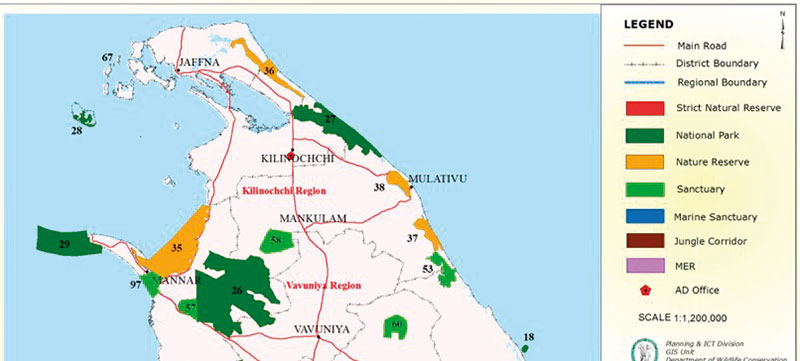
Figure 4: Protected Areas in Norther Sri Lanka Managed by the Department of Wildlife Conservation Source: DWLC
This site provides excellent feeding and living habitats for a large number of water bird species, including annual migrants, which also use this area on arrival and during their exit from Sri Lanka.
Having several coastal and marine protected areas already within the Sri Lankan territory provide an excellent opportunity to establish the Gulf of Mannar – Palk Bay blue-green Biosphere Reserve (Sri Lanka) initially and eventually to join up seamlessly with the already established Gulf of Mannar Biosphere Reserve on the Indian side to create a trans-boundary blue-green biosphere reserve.
This makes perfect sense because unlike sedentary plant species, mobile animal and plant groups (phytoplankton, in particular) do not respect human demarcated territorial boundaries. The provision of a common and unhindered protected coastal and marine passage for their customary movement for food and raising young is therefore of crucial importance in conservation management. Scientific evidence-based selection of additional areas, if necessary and their respective boundaries are best be determined in consultation with expert groups on marine mammals and reptiles, birds, fish, coastal vegetation conservation, sociology and industrial development from both sides of the divide.
Proper spatial planning needs to be done before large-scale development plans are designed and implemented in order to avoid conflicts of interest leading to inordinate delays and teething problems in project initiation. As a priority, the protected blue-green core and buffer regions need to be demarcated for their conservation. This could best be done in this narrow passage of land and water between Sri Lanka and India
( Palk Strait & Gulf of Mannar) by preparing a marine and terrestrial spatial plan along the UNESCO Man and Biosphere conceptual guidelines differentiating core, buffer and transition zones. While the protected areas in the core and buffer zone provide all important ecosystem services that would also serve as breeding ground for fish, crustaceans, marine reptiles, birds and mammals thereby provisioning sustainable industries to be developed in the surrounding transition areas demarcated in the joint spatial plan.
In addition, the Satoyama Global Initiative established by the Japanese at UNESCO as a global effort in 2009 to realise ‘societies in harmony with nature’ in which – Satoumi – specifically referring to the management of socio-ecological production landscapes in marine and coastal regions, is also a good model to be considered for conservation of biodiversity and co-existence between humans and nature.
Final Plea
In order to take this proposal forward from the Sri Lankan side, a number of useful baseline reports are already available including, but not limited to, the following: i. Biodiversity Profile of the Mannar District (CEJ & USAID 2022), ii. The Gulf of Mannar and its surroundings (IUCN 2012), iii) Atlas of Mangroves, Salt Marshes and Sand Dunes of the Coastal Area from Malwathu Oya to Pooneryn in the Northwestern Coastal Region, Sri Lanka (Ecological Association of Sri Lanka, Peradeniya, Sri Lanka, 2020). iv. Integrated Strategic Environment Assessment of the Northern Province of Sri Lanka (CEA 2014).
If this proposal to establish a Trans-boundary Blue-Green Biosphere Reserve in the Gulf of Mannar and Palk Bay is acceptable in principle to the Governments of Sri Lanka and India, it would be ideal if the Man and the Biosphere (MAB) program UNESCO which is an intergovernmental scientific program whose mission is to establish a scientific basis for enhancing the relationship between people and their environments to partner with the relevant Government and non-governmental agencies in both countries in making it a reality. This proposed concept has all the necessary elements for developing a unique sustainable conservation cum industrial development strategy via nature-based solutions while at the same time contributing to both climate change mitigation and adaptation.
by Emeritus Professor Nimal Gunatilleke,
University of Peradeniya
-

 News4 days ago
News4 days agoBid to include genocide allegation against Sri Lanka in Canada’s school curriculum thwarted
-

 Sports6 days ago
Sports6 days agoSri Lanka’s eternal search for the elusive all-rounder
-

 News6 days ago
News6 days agoGnanasara Thera urged to reveal masterminds behind Easter Sunday terror attacks
-

 Sports1 day ago
Sports1 day agoTo play or not to play is Richmond’s decision
-

 News5 days ago
News5 days agoComBank crowned Global Finance Best SME Bank in Sri Lanka for 3rd successive year
-

 Features6 days ago
Features6 days agoSanctions by The Unpunished
-

 Features6 days ago
Features6 days agoMore parliamentary giants I was privileged to know
-

 Latest News4 days ago
Latest News4 days agoIPL 2025: Rookies Ashwani and Rickelton lead Mumbai Indians to first win


